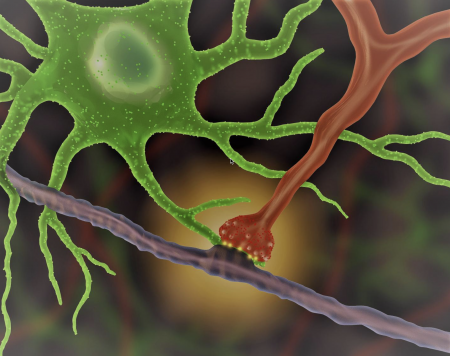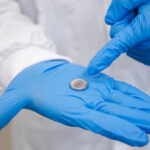May 23, 2018 – At the Integrated Soft Material Laboratory located at Carnegie Mellon University (CMU) in Pittsburgh, soft robots are emerging that contain self-healing material capable of spontaneous repair whether a surface or an electric circuit. Inspired by the body’s ability to self-heal, the research being done here represents where robotics is going.
The latest research appeared in the May 21, 2018 issue of the journal Nature Materials, in an article entitled, “An autonomously electrically self-healing liquid metal-elastomer composite for robust soft-matter robotics and electronics.”
Described as the latest advancements in wearable computing and soft robotics, these newly developed elastomers can deform and reform, taking the worst damage one can throw at them. Composed of liquid metal droplets suspended in a soft elastomer, if bruised, ruptured or cut, the droplets reform new connections. Think about an electric circuit that spontaneously reconnects instantaneously so there is no downtime.
In the reported research, the CMU lab illustrated the effectiveness of the material by demonstrating its resilience using a soft robotic quadruped that continued to operate even after being significantly damaged.
States Carmel Majidi, CMU Associate Professor, “other research in soft electronics has resulted in materials that are elastic, but are still vulnerable to mechanical damage that causes immediate electrical failure….the unprecedented level of functionality of our self-healing material can enable soft-matter electronics and machines to exhibit the extraordinary resilience of soft biological tissue and organisms.” He describes his career mission as one dedicated to creating robots and machines that “behave like soft biological organisms” and that are “safe for contact with humans.”
The elastomer composites containing fluid metals provide a unique combination of properties that can function as artificial skin, nerve tissue, and muscle. This is a significant departure from Boston Dynamics, and its hard-shelled, wired systems containing integrated silicon circuit boards, our traditional view of what robots are all about.
For soft-bodied, self-healing robots that emerge from the CMU Lab I suspect there will be numerous applications including using the soft elastomers to create human-machine interfaces, to develop new biomedical prostheses, to marry soft robot systems with conventional microelectronics for use in all kinds of industrial applications, and to help humans in their efforts to conquer space and even live on Mars.
To learn more about the work of the CMU Lab watch this video.















